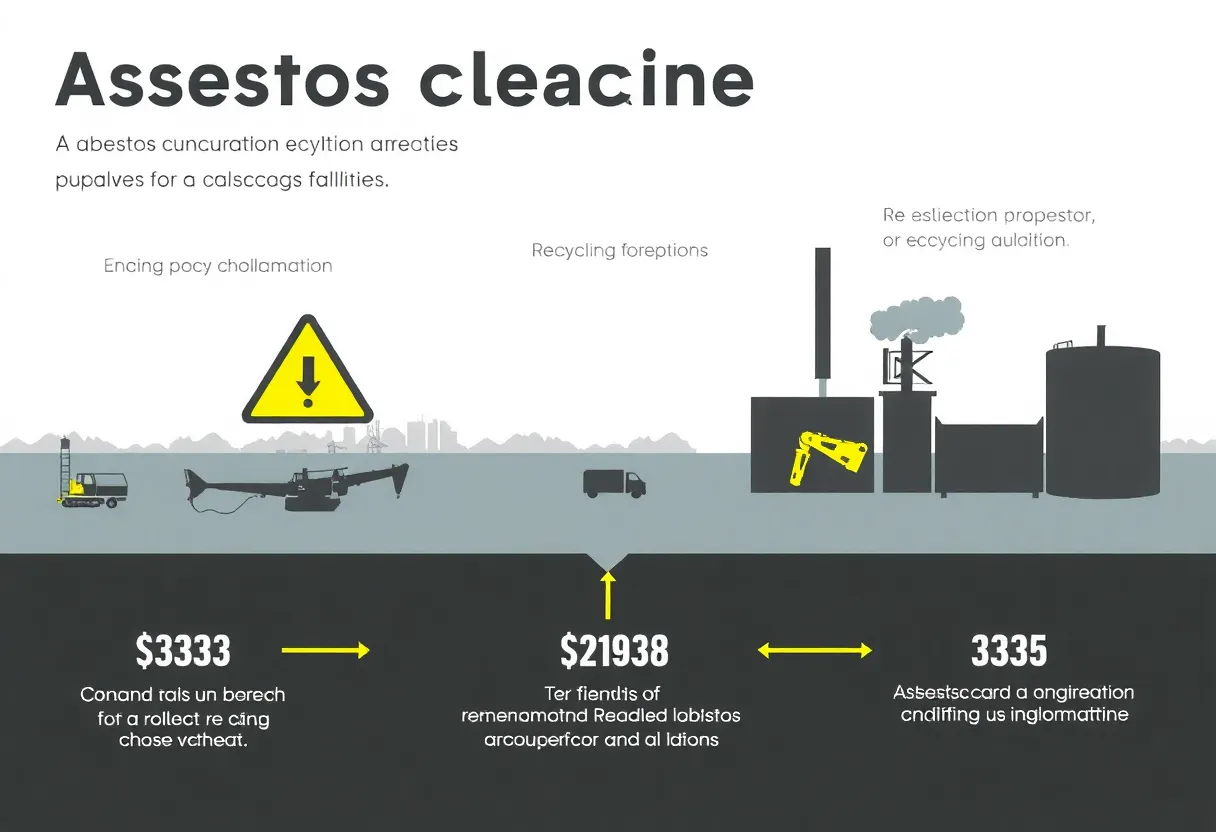News Summary
A recent report from the OCSE highlights flaws in NSW’s asbestos management strategies, calling for urgent reforms and community safety measures.
The Asbestos Crisis Continues: Report Reveals Chinks in the Armor of NSW’s Management Strategies
The unsettling shadows of asbestos continue to loom over New South Wales, with recent developments shedding new light on the inadequacies of current asbestos management protocols. This all comes in the wake of a detailed report commissioned by the Office of the Chief Scientist & Engineer (OCSE), responding to transitional queries presented by the previous NSW Minister for the Environment. The report, which stretches across an extensive 100 pages, was unveiled on December 11, 2024, detailing an urgent need to recalibrate how asbestos is managed in recycled materials.
The Flaws in “Zero Tolerance”
Central to the OCSE’s findings is a critique of the existing “zero tolerance” approach to asbestos management. This strategy has become a cornerstone of waste regulation, yet the OCSE emphasizes that it fails to actually eliminate asbestos from waste materials. This revelation raises significant questions regarding the efficacy of current practices, particularly as the report points out that recycling facilities bear a disproportionate share of the burden in managing asbestos risks.
A Shift in Regulation on the Horizon?
In a proactive stride towards reform, the OCSE suggests adopting a concentration threshold for asbestos in waste set at 0.001% w/w, aligning NSW with the more flexible guidelines established in Western Australia. This is a pivotal recommendation that could inspire a much-needed transformation in legislation, initiating a process that involves engaging industry stakeholders in constructing new guidelines, with pilot programs to validate these changes.
Raising the stakes further, the report underlines the necessity for comprehensive training programs for individuals who handle asbestos, aiming to enhance compliance with regulations and improve overall safety metrics. The OCSE is also advocating for the allocation of funding and grants to develop innovative practices and technologies for asbestos detection, pushing the envelope on technological integration in health and safety.
Current Regulations and Their Limitations
Despite the OCSE’s compelling recommendations, the Protection of the Environment Operations Act 1997 (NSW) remains unchanged, leaving the “zero tolerance” policy firmly intact. Meanwhile, an air of uncertainty lingers as the EPA has not yet publicly articulated a response to the OCSE’s findings, despite its prior acknowledgment of the necessity for a re-evaluation of asbestos management protocols.
Community Health at Risk
The specter of public health concerns is made even more alarming with recent discoveries of asbestos in mulch utilized in playgrounds, schools, and parks. Investigations have unveiled contaminated timber waste derived from construction and demolition sites, processed into mulch and leaving communities on edge regarding their safety. To date, approximately 60 contaminated locations have been identified in Sydney, with growing fears that this number will escalate as more investigations are conducted.
Integrity of Recycling Practices Questioned
The magnitude of the contamination scandal has been described as the largest failure in Australia’s circular economy history, exacerbated by the fact that certification of recycled products remains non-mandatory. Research delves into the rampant ignorance and hesitance towards product certification schemes within the recycling sector, which only adds fuel to an already raging fire of public discontent. While current legislation stipulates that mulch must be free from contaminants, the lack of mandatory testing for suppliers has left a loophole wide open.
With past investigations uncovering widespread non-compliance in the testing of recycled materials, many are left questioning the credibility and integrity of existing testing processes as evidence mounts regarding the retesting of non-compliant samples merely to meet regulatory benchmarks.
Trust in the Circular Economy at Stake
This ongoing saga of contaminated recycled materials is severely undermining public trust in the circular economy, complicating procurement decisions for municipalities and individuals alike. There is now a clarion call for effective strategies to safeguard public health and a recognized demand for comprehensive reform within waste management practices.
In conclusion, the OCSE’s report stands as a critical compass, directing attention toward pressing issues in asbestos management that require immediate action. As NSW grapples with these revelations, the push for systemic change in asbestos regulation could potentially lead to safer, more transparent environments for communities across the region.
Deeper Dive: News & Info About This Topic
HERE Resources
EPA Takes Decisive Action to Ban Asbestos Use in the U.S.
U.S. Announces Historic Asbestos Ban: What You Need to Know
The Future of Mesothelioma Treatment: A Positive Transformation
United Kingdom Braces for Legal Battle Over J&J Talc Claims
Rising Tide of Lawsuits: Women Take on Pharma Giants over Health Risks
Community Mourns the Loss of Jack Wayne Area
Shining a Light on Mesothelioma: The Orphan Cancer That’s Still Suffering in Silence
Breakthrough in Mesothelioma Treatment: FDA Approves New Combination Therapy
Transformations in Mesothelioma Treatment: A Look at the Future
Woburn Sands Waste Site Operator Found Guilty



















